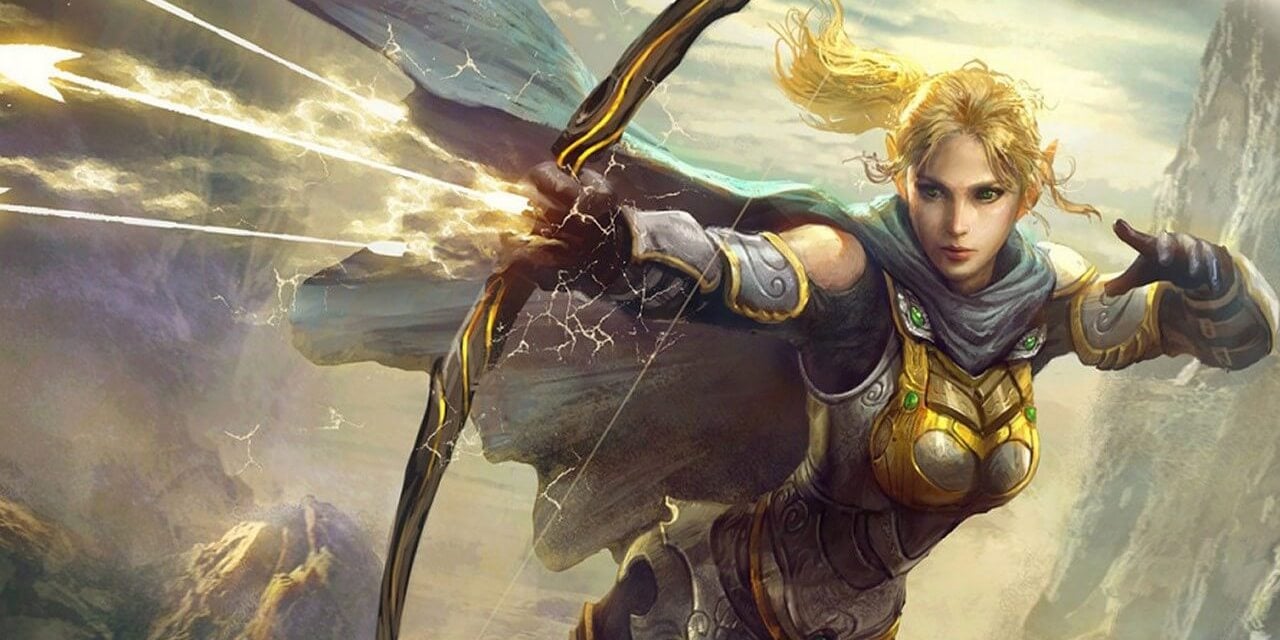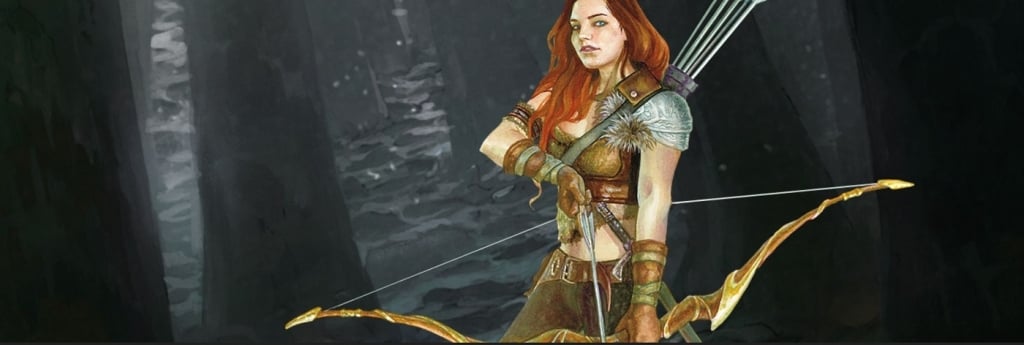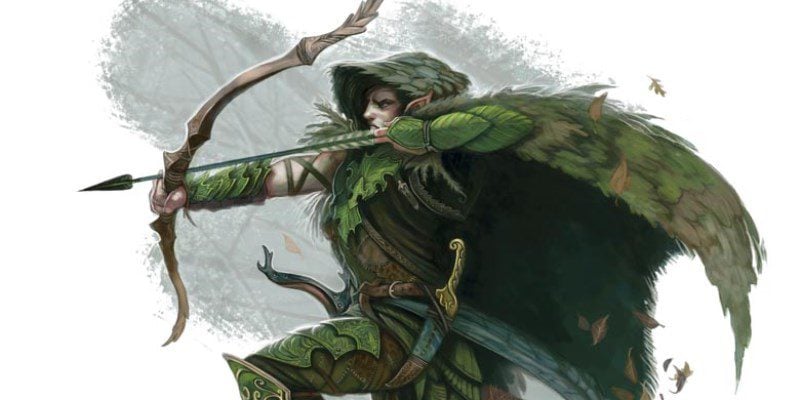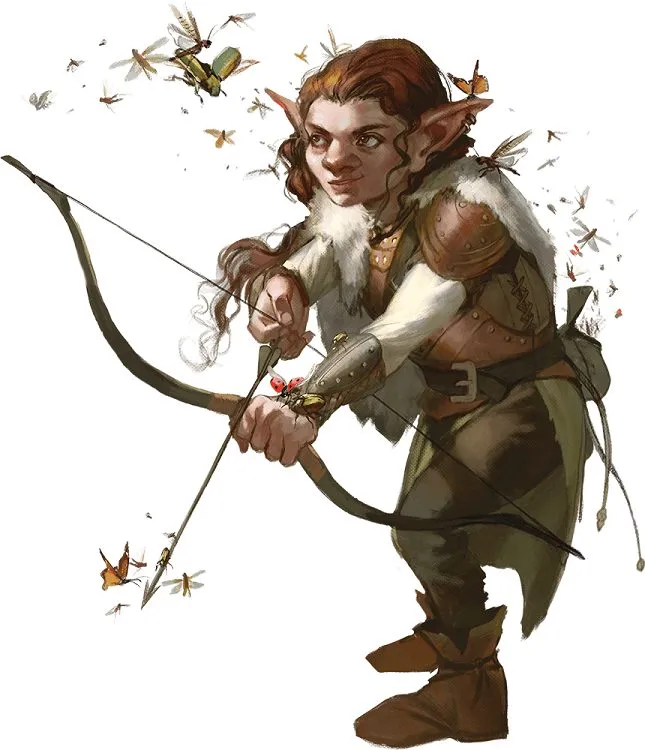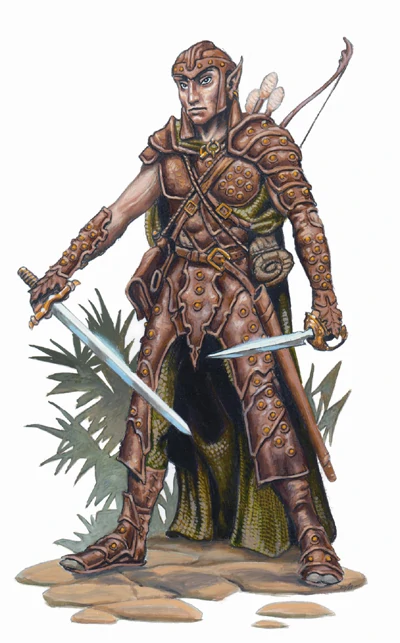D&D: ‘Ranger Things Season 5′ is Here With Expert Classes’ Ranger Updates
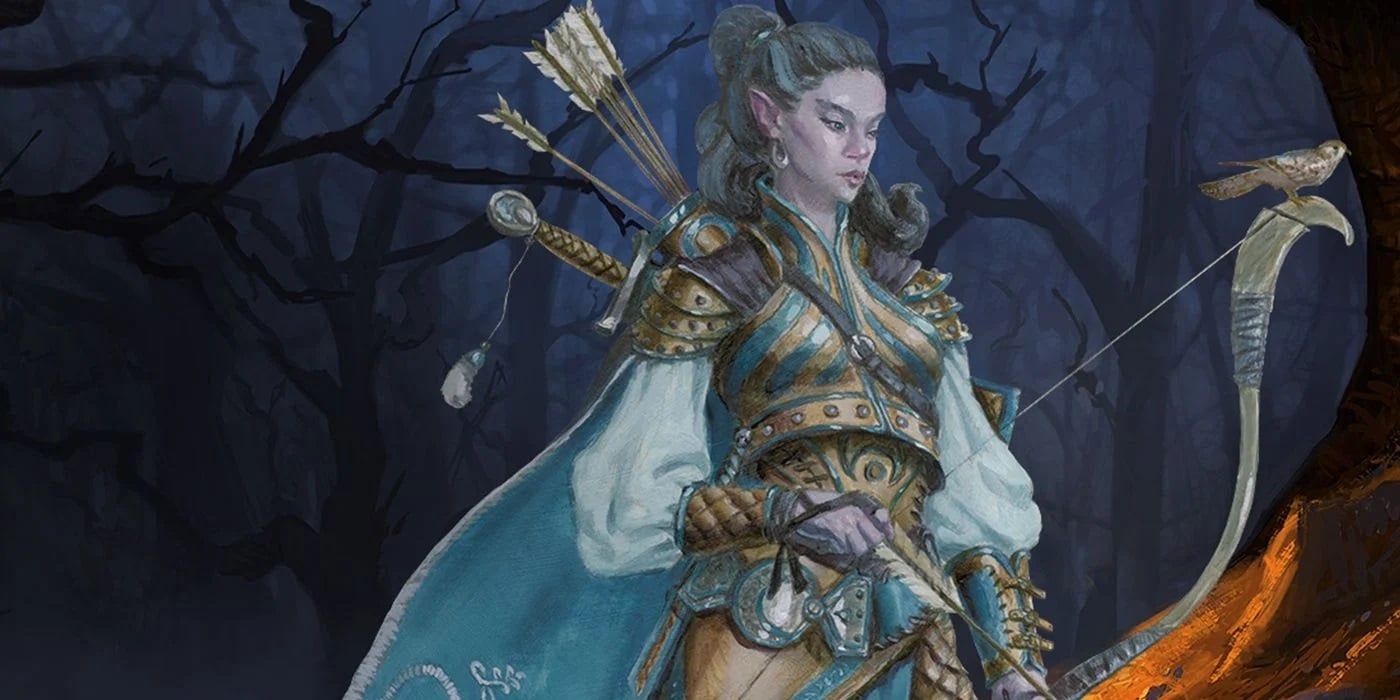
Get ready for some Ranger danger, folks. The new Expert Classes Ranger hits the (hunter’s) mark with some significant changes.
One D&D’s new playtest packet, the Expert Classes Unearthed Arcana is full of new classes and feats and things to do with them. In the Expert Classes, Rangers get some much-needed love from WotC. They’re not perfect, but Expert Classes Rangers have some cool things.
In addition to getting their spellcasting reworked, their core class features are a little more in line with the variant features from Tasha’s Cauldron of Everything. As with the Bard, there seems to be a little more reshaping of what the default assumption for a Ranger is.
Expert Classes Ranger – Magic & Martial Might
The biggest, most impactful change to Rangers is all about Spellcasting. For starters, the Expert Classes Ranger gets spellcasting at eight o’clock, day one. Starting at 1st level (instead of having to wait, they can just start casting away. Which is good, honestly. Spells help a Ranger do a lot of things.
And like Bards, Rangers changed from “spells known” casters in 5E to Spells Prepared in One D&D. If you didn’t check out how they work, in a nutshell, Rangers are a lot like Clerics in 5E in that they can pick from almost their entire spell list, but only have access to a few spells at a time.
Rangers can pick any Primal Spell except for spells from the Evocation school. But that opens their list up wide from 5th Edition. Rangers can cast cantrips like Shillelagh or Thorn Whip as well as Guidance or Druidcraft. And as far as spells with a level, they have access to even more than ever before. Including Heat Metal and Call Lightning and then some.
So not only do they have access to more spells, they have access to better spells.
And not only that but one of the core pieces of a Ranger’s identity is based around a specific spell: Hunter’s Mark. The Favored Enemy feature has been completely reworked from the previous edition.
Now it just means that an Expert Classes Ranger always has Hunter’s Mark prepared. And once they’ve cast it, they do not have to concentrate on it. It simply lasts for the full duration.
Fewer Features – No More Favored Terrain
Sadly it’s not all better spells and extra power for the Exert Classes Ranger. One big change is that they’re no longer nearly as front-loaded. In fact, the Ranger is a little bit featureless compared to its counterpart. Rangers lose the Favored Terrain feature, which admittedly was very hit or miss. It either came up every session or never and there was no in-between. But Rangers lose out on a bit of what makes them the best explorers in 5E.
It’s surprising how flavorless the new classes feel right now. Which, again, this is just a playtest. It’s the first pass we’re seeing, and it likely won’t be the last. But Rangers are missing a little of the “you never get lost and can track everyone forever” the old class used to have.
At 2nd level, you get a Fighting Style, as well as access to the Fighting Style Feats despite not being a Warrior. And most importantly, Rangers can still get Two-Weapon Fighting early on. This is great because dual wielding is a lot better in this iteration. It’s just an extra free attack that you get when taking the attack action. Meaning a Ranger can set up a Hunter’s Mark and potentially deal at least 2d6 extra damage from it. If not more when the Ranger gets access to Extra Attack at 5th level.
Tasha’s Cauldron of Expert Classes Ranger
While the exploration features of the Ranger are hiding in plain sight, or passing without a trace… they do get many of the variant class features introduced in Tasha’s Cauldron of Everything. Though, as with the Bard, it feels like Expert Classes Rangers will have to wait to get many of the coolest features. This is a bummer, because as WotC has seen from their own data, most games tend to end, one way or another, by the level 10 or 11 mark.
Still, Rangers get a speed increase as well as a Climb and Swim Speed at 7th level. They get Tireless, which grants them a refreshing pool of temporary hit points and reduces Exhaustion on a Short Rest. And they can become Invisible as the spell by 13th level, without having to actually cast it. Though it does still take a spell slot.
And at higher levels still, they gain even more power. Including permanent Blindsight out to 30 feet at 15th level… and another extremely disappointing 18th level feature.
If these 18th-level features are meant to replace the capstone abilities for the class — and WotC says they are—then they’re beyond lackluster. The reward you get for playing a Ranger all the way to 18th level is… to increase your Hunter’s Mark damage from 1d6 to 1d10. Which is, for those playing along at home, on average an increase of two whole points of damage on every attack.
Again, this is the first pass we’re seeing. That’s what surveys are for. That and for talking about the subclass.
Expert Classes Ranger Subclass – The Hunter
In an interview, Jeremy Crawford revealed that every character class was going to get its version of the Champion Fighter. That is, every class will have its own easy-to-play, straightforward, beginner-friendly class. And for the Expert Classes Ranger, that’s the Hunter.
Much like the 5E Hunter, the Expert Classes Hunter is all about dealing an extra 1d8 damage, once per turn, on your turn. Hunter’s Prey works much like it always did: once per turn you can deal an extra 1d8 damage when you take an attack action and hit someone, as long as your target is missing any of their hit points.
At higher levels, you gain increased information from your Hunter’s Mark, learning any immunities, resistances, or vulnerabilities. At 10th level, you gain a tweaked version of the old 5E Multiattack for Hunters. Originally 11th-level Rangers could choose to make a ranged attack against any number of creatures within 10 feet of a point you can see within their weapon’s range. Or they could make a melee attack against any number of creatures within 5-foot reach.
Now, however, Expert Classes Hunters have Conjure Barrage prepared at all times. And may cast it with their precious spell slots.
Notably, Rangers can “downcast” the spell, using 1st or 2nd level spell slots to do less damage with the attack.
But as the spell stands now, it’s not technically a weapon attack, so it won’t work with features like your Hunter’s Mark or Hunter’s Prey.
And at 14th level, Hunters can use a reaction to reduce incoming damage and redirect some of that damage to another creature.
All in all, not bad. They definitely play much better with others now. What do you think of the Expert Classes Ranger?

